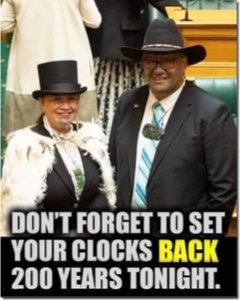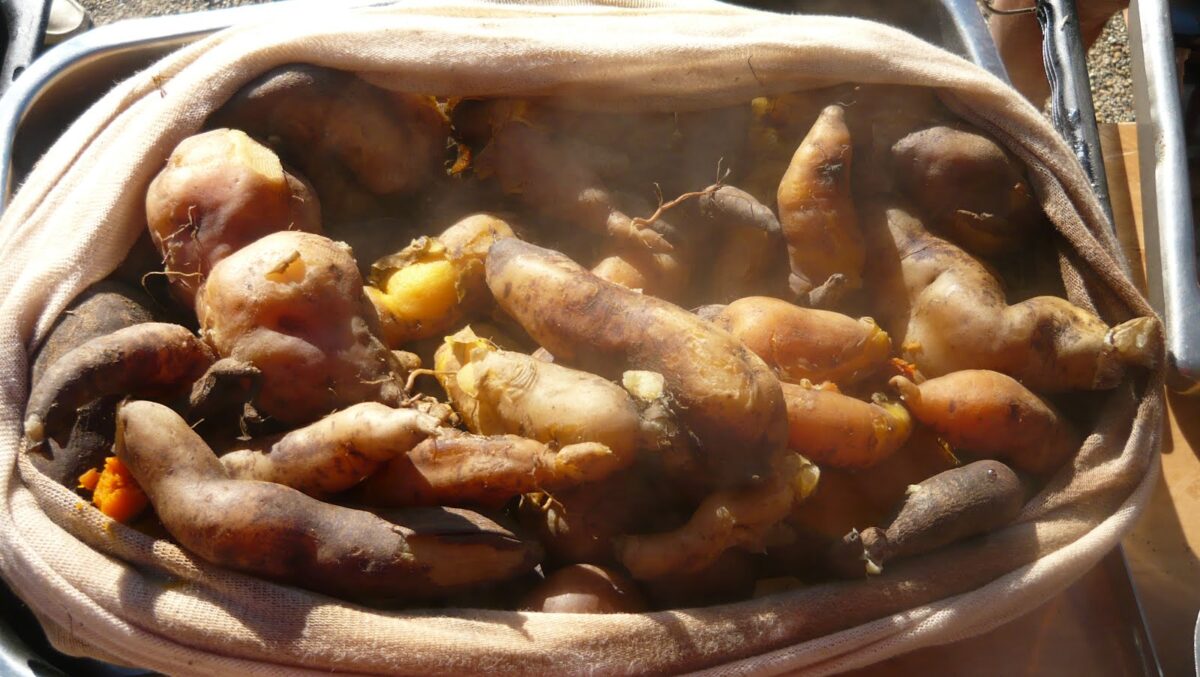Having been deeply interested in politics since my first encounters with Keith Holyoake in Pahiatua in 1948, and active in the National Party since 1960 after our return to Wellington from living in (then Western) Samoa for seven years, I now reflect on New Zealand’s political history.
It has been an ongoing persistent mix of hornets nests (such as those related to “Think Big” and the expulsion by Australia of criminals nurtured by their system but born in New Zealand) and hot potatoes (such as Walter Nash buying the 1957 election with his £100 bribe, requiring his Minister of Finance, Arnold Nordmeyer to bring down a 1958 Budget of such severity that the new Opposition Leader was able to brand it the “Black Budget” and ride that all the way to electoral victory in 1960).
Post the arrival of white settlers the tangata whenua changed their eating habits. Their staple food was once the kumara they brought with them as they peopled Polynesia and which kept them close to the papakainga where they grew them. However, they found that the potato was easier to cultivate.
But now, in a reversal of that, it looks as though what we have thus far termed “hot potatoes” should be re-named “hot kumaras” in line with not just the reofication of our vernacular but the attempt by the architects of He Puapua to “Maorify” our whole way of living and being governed.

This clever picture of the two current Maori Party co-leaders says it all.
Alongside the attempts by a minority to pervert our democracy by giving a few Maori extremists 50 per cent of our governance, is a not so subtle campaign supported by the present government to change the name of our country to Aotearoa.
Consider this statement attributed to Prime Minister Ardern:
“I hear more and more often the use of Aotearoa interchangeably with New Zealand and that is a positive thing. Whether or not we change it in law I don’t think changes the fact New Zealanders do increasingly refer to Aotearoa, and I think that’s a transition that has been welcomed.
It’s not something that we’ve explored but I am really encouraged to continue to see people use it more frequently and I hope to see it used more internationally as well.”
No prizes then for guessing why it is that Aotearoa is used by Labour and Green MPs and departmental officials.
But, thankfully, there is opposition. The latest in a growing swell rejecting the adoption of this mythical fallacy comes from renowned Nelson author Amy Brooke in a scholarly essay in the Australian publication, The Spectator:
The key extract reads:
New Zealand’s democracy is under attack today, the country virtually ruled by a radicalised Prime Minister. Moreover, the push to remove our world-recognised name, to replace it with Aotearoa, is backed by Ardern, constantly using this term. Every government department has now apparently been instructed to follow suit with a parallel push to Maorify the names of all our cities, towns and other places. However, hoist by their own petard, the radicalised Maori party states it is well past time that Maori was restored to its rightful place as “the first official language of this country”, with the claim “We are a Polynesian country. We are Aotearoa.” But the 20, 000-word language of pre-European Maori is another issue entirely.
Two separate polls have overwhelmingly rejected the government’s use of the word Aotearoa instead of our traditional name. Probably the majority of New Zealanders would agree with National party MP Stuart Smith that this supposed substitute for the name of our country should be removed on all official documents
And you can sign a petition at NZCPR here:
But, if we’re going to lapse into fairyland in choosing an alternative name for our country, let’s not be half-hearted, let’s go all the way. In which case I offer the choice of two names:
Jacindarellastan (with Grant Robertson playing Prince Charming to her Cinderella, both dressed in appropriate Taliban attire); or
La-La Land
Of the two, La-La Land is preferred because it can at least be found in the Merriam Webster Dictionary, where it is defined as
a euphoric, dreamlike mental state detached from the harsher realities of life
(That dictionary does not show either Aotearoa or Jacindarellastan, and I didn’t bother consulting the Oxford English Dictionary to avoid being accused of racism for reliance on a title containing the word “English”).
And when you look at the recent performances of Prime Minister Ardern, and her Glasgow-bound Climate Change Minister James Shaw with (how many at last count: 12 officials?), La-La land becomes the more appropriate.
I’m leaving the text of this week’s column a little shorter because I’d like you all to take the time to watch this video by UK-based Kiwi commentator, Trevor Loudon. It’s about his home country New Zealand that will make you think, and hopefully act to make sure that our country does not become in fact, La-La land.
Please share this BFD article so others can discover The BFD.

